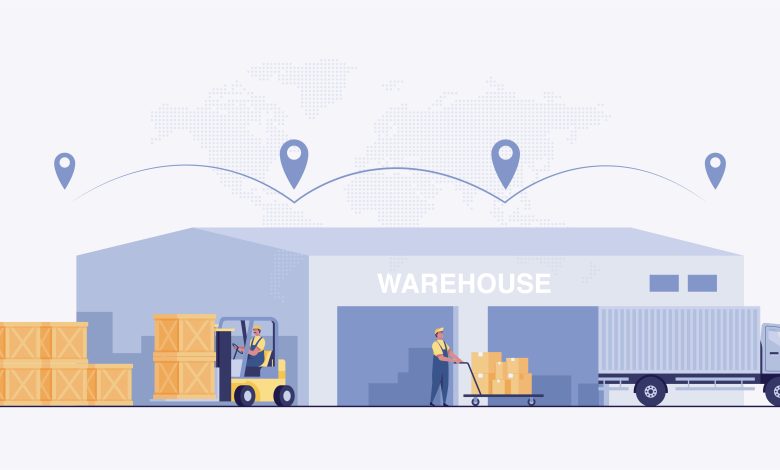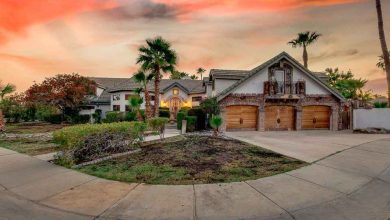How To Rent A Warehouse For Your Business?

You may find yourself in need of a significantly larger facility to manufacture or store products and inventory as your firm grows. In this situation, you might require industrial warehouse rental. Industrial properties include warehouses, manufacturing facilities, and multipurpose areas. These areas may be utilised for the manufacture, storage, fulfilment, or distribution of products or items.
How to find industrial space, including what to search for, how to assess your space and leasing needs, and the fundamentals of industrial commercial leases.
Assess Your Commercial Industrial Space Requirements
The nature of your business dictates the type of property that best meets its requirements. Industrial property typically falls into one of three categories:
-warehousing area
-Space for production
-Flexible area or property with multiple uses (a combination of both warehouse and manufacturing)
Each variety of industrial space performs a unique function. A warehouse’s primary functions are goods storage and delivery. A distribution centre is a sort of warehouse rental use for product distribution that is not involved in the construction or assembly process. Utilizing a warehouse could necessitate packaging and labelling equipment in preparation for shipment.
In contrast, a manufacturing space is where items are created, constructed, or assembled. This type of area may require unique zoning or construction, such as reinforced floors, high-volume power sources, or a specific ceiling height, depending on your industrial needs.
A flex space, also known as a mixed-use facility, is a mixture of a warehouse rental and a manufacturing area, allowing you to fulfil your warehousing and production demands in one location.
Therefore, you will need to establish whether you are searching for a location to manufacture your product, store your product, package and ship your product, or a mix of the three.
Finding the Appropriate Commercial Industrial Property
It is simple to begin your search for a commercial or warehouse property from the convenience of your home or workplace, using online property databases. You can use online databases to compare homes that fulfil your precise requirements once you’ve determined the type of property that best fits your business.
As you start your search, you’ll need to decide:
- Your monthly rental expenditures
- How much room you require
- What kind of location are you seeking – do you need to be close to clients, partners, or certain forms of transportation?
- What features you require, such as offices on-site, truck loading docks, huge power supply, reinforced flooring, or a specific ceiling height.
After conducting an online search to determine your needs and gain an understanding of the market, use your list of criteria to connect with a local commercial real estate agent. In the business lease market, commissions are normally paid by the landlord or owner, so this step should not cost you anything.
Visiting Industrial Commercial Properties
The next step is to schedule appointments to visit the business properties. Only after conducting a comprehensive walkthrough of each property will you be able to determine whether or not it matches your specific requirements. You should also provide a detailed description of your demands to the real estate agent, who may be able to recommend properties or identify potential issues. Additionally, your real estate agent will be aware of any zoning concerns. For instance, manufacturing procedures that utilise specific chemicals or hazardous materials may be prohibited in particular regions.
Experts advocate keeping track of your possible warehouse rental options to stay organised. One approach to do so is to construct a spreadsheet including information about each location you visit. Use the categories to compare the following aspects of the properties you see:
- in square feet
- Unit leasing pricing
- Additional fees and costs
- Leasable duration (months or years?)
- How well each home matches your requirements
If you find a room that does not meet one of our criteria, you can inquire with your real estate agent about modifying or altering it. This won’t always be possible, but it’s worth asking if you find a place you like that isn’t quite ideal.
Contact with Specialist
You should also inquire with your real estate agent about the property’s:
- Whether the lighting is energy-efficient, which can save you a lot of money.
- What kinds of fire-prevention systems exist? (sprinklers, etc.)
- How many parking spaces are there?
- Whether adequate clearance exists for delivery trucks
- Can the space be altered to meet your requirements? (e.g. separating a section to act as an office space)x
Even if you believe you’ve located the ideal space, continue searching! However, wouldn’t you want to secure the ideal location as soon as you find it? The response is categorically negative.
Here’s why: If you find two or three viable business properties, you are not bound to the first one you see. This means that you will have a deeper understanding of which option is truly ideal for you and your organisation. In addition, if you are considering multiple residences, you will have the upper hand when negotiating the lease conditions because you won’t be frantic to make the deal. You are in a powerful position because you are aware that this is not your only option.
The goal is to maintain objectivity. Real estate can be challenging due to our natural tendency to prefer one area over another. You want a property that excites you, but don’t let your excitement cloud your business-owner vision.
The experts advise searching until you locate three suitable properties. Then and only then can you consider making proposals and comparing leasing conditions aggressively.
Basics of Commercial Leases
Commercial leases may be more complicating than residential leases due to the fact that each one can be customise to a specific firm. In addition, they involve considerably more negotiating than the average residential lease. Gross and net leases are the two categories of commercial leasing.
GROSS LEASES
The monthly rent is increased to cover taxes, insurance, maintenance, utilities, and other charges. This is the most convenient choice because you simply need to make one payment and can focus on your business; the landlord will manage the property. You must inquire about the types of housekeeping and maintenance services given (and how frequently), as well as whether you are responsible for exceeding a certain utility consumption limit.
NET LEASES
The tenant pays a monthly basic rent. In addition, the tenant pays a proportional share of the building’s other expenses, based on the proportion of the building they occupy. The most prevalent sort of net lease is known as a “triple net” lease, in which you pay your proportionate amount of the property tax, insurance, and common area maintenance. Additionally, you are responsible for cleaning services, utilities, and any other costs associated with your usage of the space. This can result in cost savings due to reduced operational expenses, but monthly rent may fluctuate and be more difficult to budget. Triple net leases are the most common type of business lease, but their conditions tend to favour the landlord, so examine them carefully.
Standard commercial lease provisions
If you believe you may be interesting in leasing a certain property, obtain a pro forma (blank) copy of the lease from the owner. In this approach, you can compile a list of every facet of the agreement and determine what conditions would work for you.
When examining the pro forma lease, you should ensure that you have a thorough understanding of all expenditures and expenses. Examine any hidden charge provisions to ensure that you are aware of the exact estimated costs to lease the property. This covers property maintenance, utility payments, and any other supplementary costs. Ask inquiries if something is not clearly stated or is unclear! Prior to signing, you must have a thorough understanding of the terms.
Typical clauses in business leases include:
- Rent per square foot and monthly total
- Payment arrangement
- refundable security deposit
- Term of tenancy (many commercial leases have terms of 3 or more years)
- Increases in rent, if any
- Utilities, taxes, insurance, and upkeep (gross or net lease)
- Who pays for improvements to a property?
- Who handles repairs?
- Is subleasing permissible?
- Exist any inventory lien claims? (variable by state)
- Tenant improvements include painting, constructing an office area, and other physical alterations to the property; they are often adding to your rent per square foot.
- Options to continue
- Provisions for lease termination (for both you and the landlord)
- Arbitration clauses
Since business lease specifics can be complex, see this SBA resource for additional information. Experts advocate consulting a commercial real estate attorney before signing a commercial lease to guarantee that all of your rights are protecting. Before you are legally obligated by a lease for commercial property, you should ensure that you fully comprehend the terms.
The Conclusion
Finding and leasing a warehouse rental for your company is a significant step. Before signing any lease agreements, you should conduct thorough research on several properties, consult with real estate professionals to evaluate your options, and then have attorneys analyse any lease arrangements. This ensures that you have taken the require procedures to rent warehouse rental that is appropriate for your organisation and that your legal rights and business assets are safeguard.





